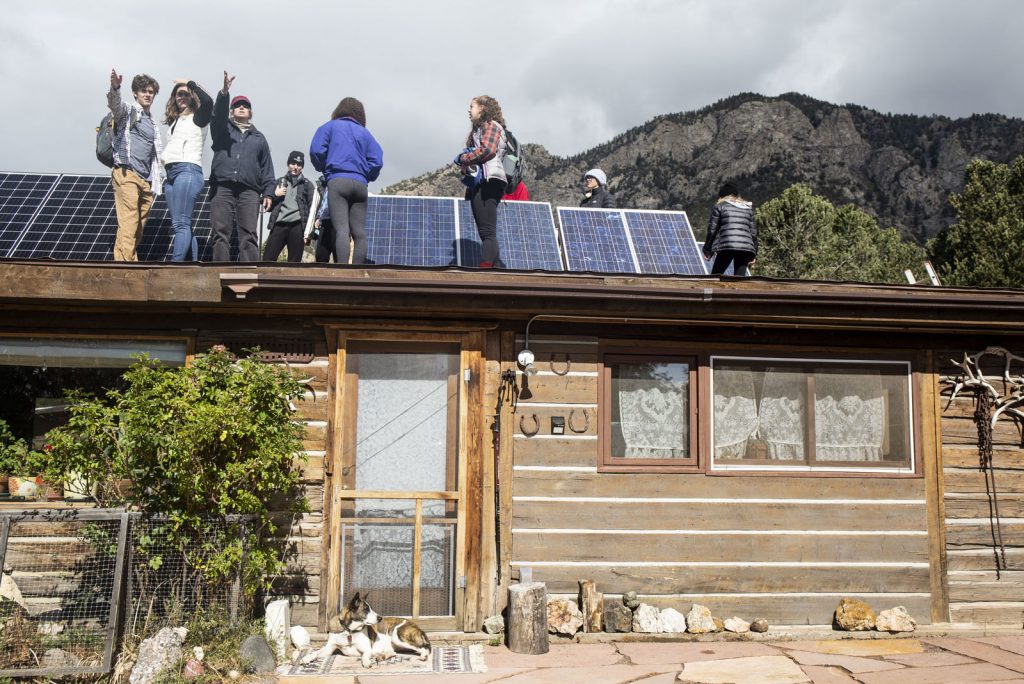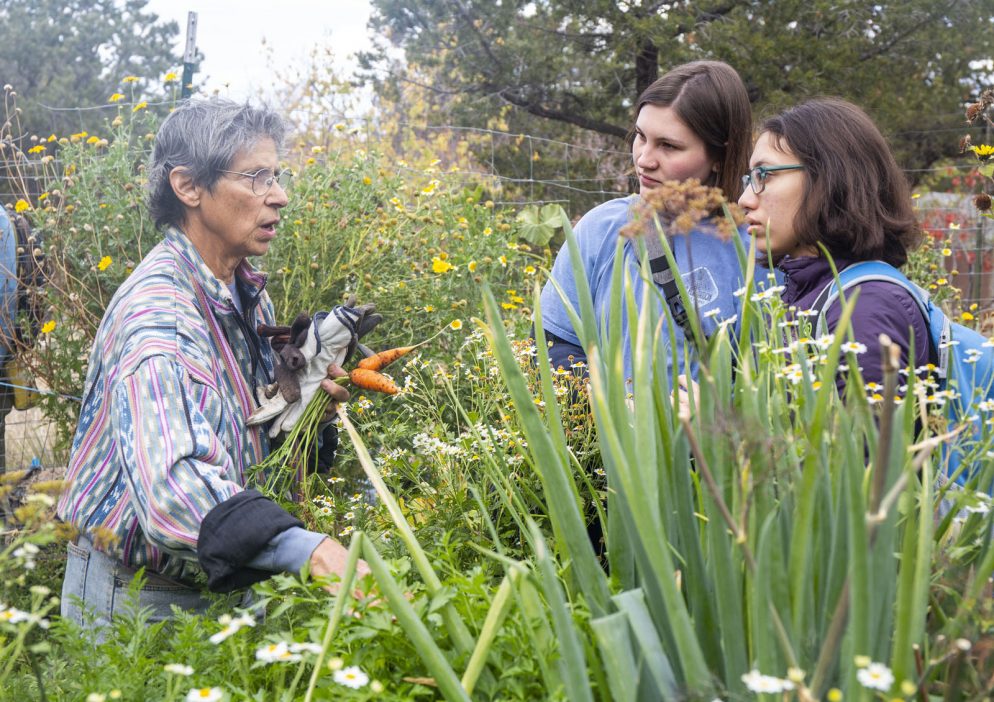Sustainability in the Classroom
At Colorado College, sustainability is a core value that is evident in classrooms across campus and in field study locations near and far. According to CC’s Office of Sustainability, most CC students are involved in sustainability classes or activities. In addition to its renowned Environmental Studies Program, 23 other academic departments are offering sustainability courses in the 2019–20 academic year. Altogether 80% of departments provide such courses, totaling 8% of all courses offered at the college. Outside the classroom, a peer-to-peer sustainability outreach and education program serves 77% of CC students. This focus on sustainability reflects the reality that for today’s students, climate change is not an issue that they will have to face someday; it’s here.
In the 32 years he’s taught at CC, Economics and Business Professor Mark Smith has helped students gain real-world knowledge by introducing them to people working on the front lines. In Block 1 last fall, students in Smith’s Managing the Impacts of Climate Change on the Colorado River course went to Denver, Glenwood Springs, the Grand Valley, Grand Junction, and Gunnison, where they met with six members of CC’s alumni community, including water resource managers, a farmer, a rancher, and other experts in the field.
“I like introducing students to people who are on the ground. I call it kicking dirt clods. They’re actually walking in the fields, seeing the water being turned out into a field of alfalfa, or peaches being grown,” Smith says. “And, I also like confronting students with various stakeholders who are all sympathetic. I think there’s a certain intensity of the experience that they appreciate.”
Economics major Diellza Muriqi ’22 took Smith’s course because she has an interest in environmental economics. For the first two weeks, students read about water in the West, sustainability, market successes and failures, and public choices. They took to the field during the third week.
“I had no idea what the water crisis was here in Colorado before taking that class. Because at CC, we have enough water, we have every source that we need. But going to that field trip, talking to all these organizations in Colorado, made me understand how big of an issue water is,” Muriqi says.
People from organizations they met with talked about many things, including sustainable usage of water and how they’re encouraging farmers to replace flood irrigation with sprinklers. Farmers talked about their family farms being affected by drought. Muriqi plans to specialize in environmental economics in graduate school, and she believes a variety of career opportunities will be available for her, including some that address water resources.
“I come from Kosovo, and we have different issues there. Here the issue is not having enough water, but in Kosovo it’s the treatment of water. So I could work with sewage treatment plants to make it possible for the water to be treated in a way so that it can be used again. That’s a possibility,” Muriqi says.

During Professor Sarah Hautzinger’s First-Year Experience course, students visit a Baca Grande, Colorado, home that was built from the wood of an old barn and is entirely off-grid to learn about sustainability decisions in the home and how these choices impact day-to-day life. Photo by Jennifer Coombes
Associate Professor Corina McKendry teaches environmental politics and political economy in the Political Science Department and for the Environmental Studies Program. McKendry says environmental courses are in demand at CC. Introduction to Global Climate Change is offered five blocks per year; it’s usually full and often has a long waiting list. A new course called Environment & Society was offered four blocks this year, and it too has been full.
“I think there’s a broad interest and concern among the faculty from across the disciplines about teaching classes that really engage with questions of sustainability, of environmental justice, and of climate change,” McKendry says. “And students are interested in the intersection of environmental problems with social equity and economic vitality.”
McKendry also directs the CC State of the Rockies Project, whose mission is to enhance understanding of and action to address socio-environmental challenges in the Rocky Mountain West through collaborative student-faculty research, education, and stakeholder engagement. Last summer, six State of the Rockies fellows conducted research on climate adaptation and inequity in the Front Range. All of the fellows are presenting their research at academic conferences.
Natalie Gubbay ’20, a mathematical economics major, conducted quantitative and qualitative research that resulted in a paper she’s submitted for publication. Her paper, “Spiraling Up Through Drought Responses in Colorado’s Agricultural Communities,” explores how 15 Colorado farming communities respond to drought, the strategies they’re using to do that effectively, and the implications of that adaptation.
“One of the things that attracted me to this opportunity was that it straddles the world of independent research, but also engages with local communities, and it produces and disseminates information that could be applicable and of benefit to the area around our college,” says Gubbay.
Gubbay looked at traditional economic measures, like county gross GDP, income, and education statistics and she researched social capital and social networks for all 15 counties. Additionally, she produced case studies for Kit Carson and Conejos counties, which involved interviewing community leaders.
“I was asking questions about strategies and resources that were important in enabling these different community members who were really central to community resilience in both counties, and asking them what strategies and resources enable them to do their work successfully. I learned a lot more focusing on the ways in which they are actively addressing drought and climate change, even in communities where people don’t believe in climate change, than I would have just understanding the constraints,” Gubbay says.
Her report back to the community leaders was well received. Kit Carson County included it in their community health improvement plan, which will be submitted to the state of Colorado.
Sustainability in the classroom is augmented by a variety of co-curricular experiences. Through Pikes Peak Workshop, teams of three to four students are paid to research a topic that addresses sustainably managing outdoor and recreational assets near campus. Sense of Place trips deepen students’ knowledge about regional sustainability issues. Through academic coursework and co-curricular experiences, Colorado College impresses upon students both the serious challenges that they must face and their ability to be the ones to make positive changes.
